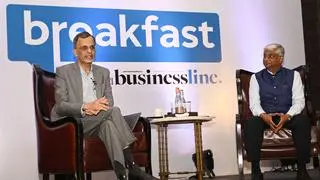Given the urgent requirement for fiscal consolidation and difficulty in controlling expenditure, the government could look at boosting revenue receipts. It is expected to increase tax revenues by widening the tax base. Some possible measures through which the government is expected to increase its tax base and tax revenues include introducing voluntary disclosure of income scheme, equivalent scheme for non-disclosed assets abroad, reducing number of exempt industries in Union Excise Act, increasing the number of industries, increase in excise duty on items such cigarettes, cement and so on. The government is also expected to target proceeds of Rs 40,000 crore from disinvestments in FY12. The government would be tackling structural inflation. Apart from various factors boosting inflation like rising commodity prices and loose fiscal policy, the supply-side constraints in the economy are also putting upward pressure on domestic prices, particularly those of food articles. This has been partly the result of lack of reforms in the agricultural sector, be it productivity enhancing investment, improvement in cold storage chains, investment in R&D in agriculture or reduction in mandi tax. As food inflation is becoming more entrenched the government may decide to move in the direction of such reforms.
While the Government remains committed to its inclusive growth agenda and has been quite aggressive in introducing schemes to promote employment, health, education and infrastructure in rural areas, In FY 12, giving the pressing need for fiscal consolidation it will go relatively slower on its inclusive growth agenda. We believe that the likelihood of government announcing any additional and significant social scheme is relatively low in FY 12, although the food security bill could be introduced with a much reduced scope, sometime during FY 12.
If one were to gauge the impact of the Budget on industries, while the expectation is benign for most sectors, a few sectors could come under the purview of taxation. We expect many tax-exempt services to come under the purview of taxation. Second, the government may not extend the exemptions granted to various sectors — IT where we do not expect any extension in the sunset clause on tax exemptions for STP. Third, there could be an increase in excise duty within FMCG (especially cigarettes) and auto sectors i.e. additional excise on diesel cars. On the positive side, we see increased allocation to infrastructure and continued social spending benefitting the construction and consumer sectors, respectively.
Naresh Kothari
President, Edelweiss Group








Comments
Comments have to be in English, and in full sentences. They cannot be abusive or personal. Please abide by our community guidelines for posting your comments.
We have migrated to a new commenting platform. If you are already a registered user of TheHindu Businessline and logged in, you may continue to engage with our articles. If you do not have an account please register and login to post comments. Users can access their older comments by logging into their accounts on Vuukle.